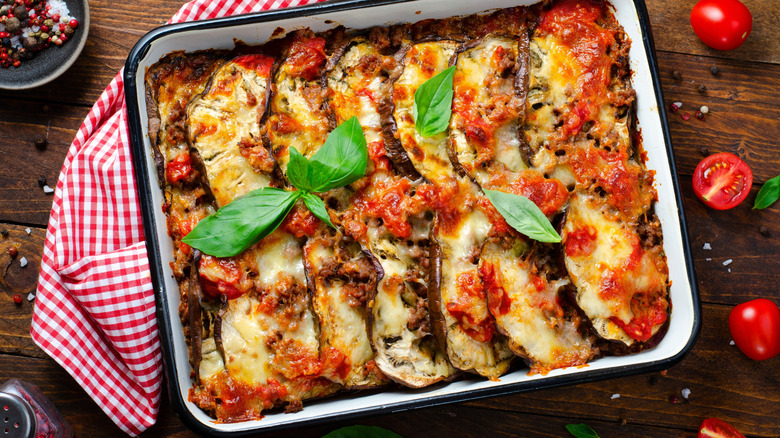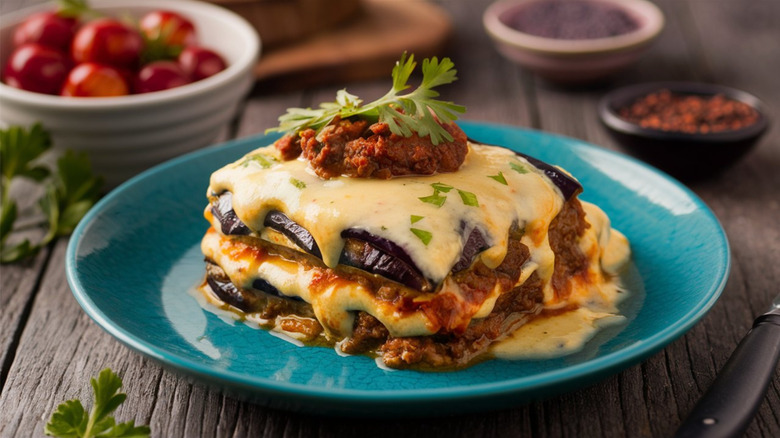The Salting Rule You Should Follow When It Comes To Roasting Eggplant
Cooking with eggplant means facing the confusing "to salt or not to salt" question. The culinary advice has long been that you should salt eggplant before you cook it for better taste and texture, but is it really necessary? The answer isn't a clear-cut yes or no; it depends on how you plan to make the fruit – one of six that are always mistaken for vegetables.
Salt pulls liquid from water-heavy eggplant, which helps keep the flesh from soaking up too much oil and becoming saturated and greasy. That makes salting important when you're frying it or making it other ways with a hotter heat and quicker cooking time, like searing or grilling — when you want it crispy on the outside but silky soft inside. But if you're roasting or baking eggplant, both lower heat and longer cooking time methods, salting isn't necessary because the flesh has enough time to soften and become luscious and creamy without the extra help. Even so, removing some of the eggplant's liquid helps intensify the taste. So while it's not necessary to salt eggplant for roasting or baking, you can if you prefer the taste.
Another reason traditionally given for salting eggplant is that it reduces bitterness, but this no longer really applies. Agricultural methods like selective breeding have removed the trait, so most eggplants aren't bitter anymore – particularly if they're not large or old.
The salting process explained and more benefits
Salting eggplant takes time, so plan ahead if you're going to do it. Cut it into the pieces you'll need (either sliced or diced), then abundantly salt all the cut surfaces. Put them in a colander over a bowl or spread them out on paper towels and let the salt do its work for 30 to 90 minutes. Rinse and gently dry the pieces, and they're ready to go. However, one additional step removes even more water. After salting its surfaces, put the eggplant on kitchen or paper towels in a baking pan with more towels on top. Then place another baking pan over it with something weighty to press out additional liquid.
Drawing water out with salt has other benefits besides preventing too much oil absorption. Eggplant has a spongy texture that becomes sturdier from salting, a beneficial transformation for recipes like eggplant rollatini in which it's rolled and filled. The same process of osmosis that pulls liquid out also helps better season the eggplant. As water exits its cells, some salt goes in, seasoning more thoroughly within the flesh than sprinkling salt on just before cooking.
So, while roasting or baking eggplant makes it too soft to benefit from a good salting, you should still do so for other dishes. For instance, if you're using fried eggplant to make parmigiana, like this 200-year-old, Michelin-starred eggplant parm recipe, or a Greek moussaka, one of the most influential international dishes ever, it should be salted according to the rule for hotter and faster cooking.


